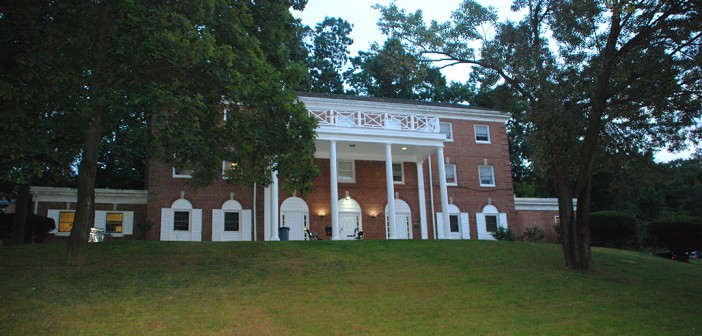Lehigh’s chapter of Phi Kappa Theta was dissolved by the University Committee on Discipline effective Jan. 20 through Dec. 1, 2021.
The decision follows an off-campus incident on Nov. 22, 2019, in which LUPD responded to an off-campus party of approximately 75 students, where alcohol was present.
“The IFC executive board is saddened by the dissolution of one of our community members, but we remain confident in the progress and change our community has made, and will continue to make,” the Interfraternity Council executive board said in a statement.
Following an investigation by the Office of Student Conduct and Community Expectations, the University Committee on Discipline charged the fraternity with respect for self, failure to complete imposed sanctions and the unauthorized consumption, distribution or possession of alcohol.
The chapter had been on deferred disciplinary dissolution three times since 2017. The first sanction of deferred dissolution occurred on Sept. 27, 2017, when the fraternity was charged with six violations of the Code of Conduct. The sanction was intended to last until Dec. 31, 2018.
A month before the sanction ended, however, the fraternity was charged with three violations of the Code of Conduct, which extended their deferred disciplinary dissolution until Dec. 1, 2019.
But in February 2019, different events led to six other charges to Phi Kappa Theta, further extending their deferred disciplinary dissolution status to May 31, 2020. Deferred dissolution is when “the organization is on notice that any further violations of the Code of Conduct will result in the dissolution that was originally defined becoming effective immediately without further review,” according to the Code of Conduct.
All 13 IFC chapters were charged with hazing violations in February 2019.
“Even though the chapter conducted these activities while on deferred dissolution and normally we would dissolve the organization, the panel believes that the current leadership of the chapter is truly resolved to change the culture of the chapter,” the panel wrote in response to the February 2019 incident. “This is evidence by the purging of nearly 50% of the chapter membership after this incident and reaching out for meaningful assistance from the national office.”
The November 2019 incident pushed the panel to dissolve the chapter.
“Phi Kap’s been cut some slack a couple times in the past, where they’ve been on deferred dissolution, had a conduct case and the panel who heard the case decided not to dissolve them,” said Christopher Mulvihill, the associate dean of students.
Mulvihill said the panel who reviewed this case involved one faculty member, one staff member and one student. Phi Kappa Theta was allowed to have one representative and one advisor present, as well as three other members who could observe but not participate. Phi Kappa Theta was given one week’s notice of the hearing and the members selected on the reviewing committee, so the chapter could alert the committee if they were concerned of bias, Mulvihill said.
Lehigh’s Phi Kappa Theta chapter is recognized as the organization’s Pennsylvania Alpha chapter, according to their national website. Mulvihill said he didn’t think that this classification weighed into the panel’s decision.
The fraternity has until Thursday, Jan. 23 to file an appeal of the ruling.
Mulvihill said he didn’t expect the panel’s decision to impact the university’s 10-point Greek Life plan, which was released last March.
“If Lehigh wanted to get rid of its Greek system, Lehigh could get rid of its Greek system,” he said. “Right now, it appears that some of our fraternity chapters are trying to get rid of the Greek system on their own, but we’re not trying to get rid of the Greek system.”
Mulvihill said a chapter’s past disciplinary record, the past rationale from a panel on an incident and a commitment to make change could impact a panel’s decision on a pending case. A chapter which removes troublesome members, conducts a membership review or formulates a new member education plan are some ways chapters can show improvement.
He added that alumni and national chapter support could positively influence the panel’s decision.
“We want a healthy, thriving Greek system here. And sadly there are chapters that don’t want to change, or can’t find a way to change… It’s sad that this happened, but this isn’t the university’s fault,” Mulvihill said. “We didn’t violate the Code of Conduct, the chapter did.”






Comment policy
Comments posted to The Brown and White website are reviewed by a moderator before being approved. Incendiary speech or harassing language, including comments targeted at individuals, may be deemed unacceptable and not published. Spam and other soliciting will also be declined.
The Brown and White also reserves the right to not publish entirely anonymous comments.
3 Comments
Looks like they had a special celebration for their centennial. It’s a sad day for Lehigh’s Phi Kappa Theta alumni
1991 Lehigh graduate here, but not from Phi Kap. My house was a bit more rowdy, but it’s still there. Not sure how though!!
Linus, there was only one house that was worse back then, Phi Sig. How they are still there is one mystery that I’ll never understand.